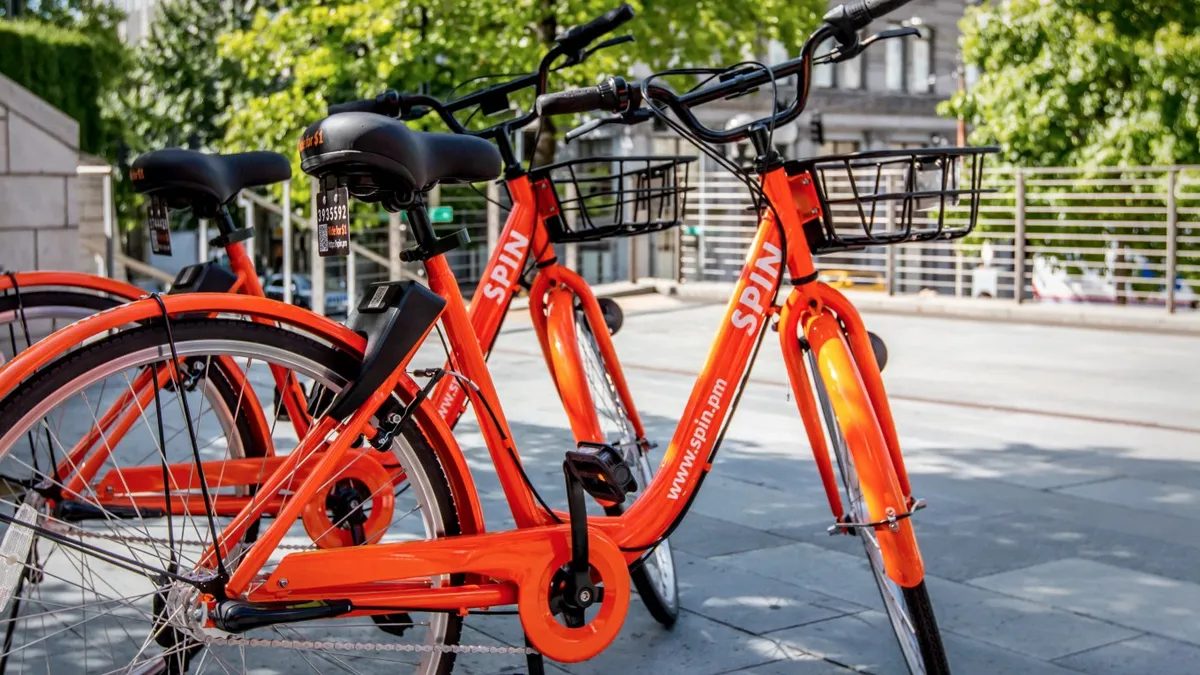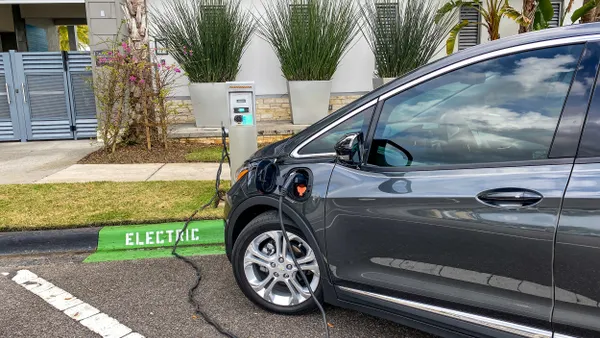Dive Brief:
- Dockless scooter company Spin unveiled a "partnership promise," saying it will always get permission from cities and relevant transit authorities before launching in a new market. The document from President Euwyn Poon also says it will share data with its city and university partners.
- Spin offered a model permit the company drafted with the City of San Francisco as a resource for other cities looking to approve dockless companies.
- "We respect the rule of the law and believe it’s possible to innovate while still upholding public safety and order," Poon wrote in the pledge.
Dive Insight:
The pledge can be seen as both an olive branch to cities worried about dealing with the headache of dockless companies, and a direct swipe against competitors in the fast-growing market. Poon’s pledge says "in a quest for first-mover advantage, some companies have unfortunately turned to the playbook used in the early Uber days of launching first and then leaving it to cities to pick up the pieces."
Spin’s document is reminiscent of the "Save our Sidewalks" pledge that rival company Bird issued in March, where CEO Travis VanderZanden challenged competitors to set guidelines for responsible practices. But that pledge largely went nowhere — Forbes pointed out that specific promises like clearing sidewalks of vehicles every night were not possible for competitors, and rivals did not sign on.
Spin’s promise to work with cities before launching could put the company behind its fast-moving rivals, but could also give it a leg up when potential regulations come down. Cities like Austin and Chicago have passed measures setting requirements for dockless scooters and bikes, and more cities are likely to follow suit. Forward planning could help Spin avoid having to clean up a deployed fleet at high cost.
Interestingly, Spin also positioned itself as an ally to transit agencies in solving the "first-mile/last-mile problem" of getting commuters to and from transit stops. The document highlights work with the Bay Area Metropolitan Transportation Commission to use data to put scooters near transit stops. That sort of partnership could serve Spin or its competitors well; similar to ride-sharing companies, cities may be more willing to deal with alternative transportation options that can work with existing transit rather than as a competitor.











